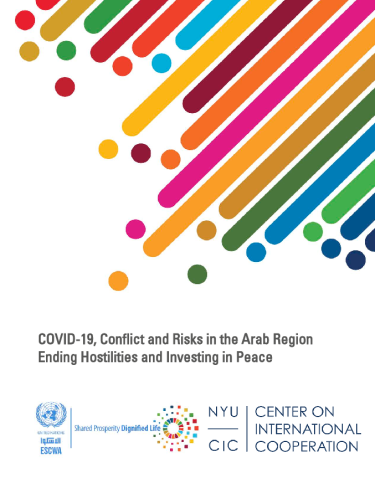The twin health and economic crises precipitated by the COVID-19 pandemic continue to pose an unprecedented threat to wellbeing in the Arab region, particularly in conflict-affected countries such as Iraq, Libya, the State of Palestine, Somalia, the Sudan, the Syrian Arab Republic and Yemen. The consequences of protracted conflict and military occupation, which include mass forced displacement, profound food insecurity, collapsing health sectors, and severe economic decline, have left these countries uniquely vulnerable to the virus and its devastating secondary effects.
In light of these crises, the call for a global humanitarian truce made by the Secretary-General of the United Nations in March 2020, and its subsequent endorsement by the Security Council in resolution 2532 (2020), remains of paramount importance. Only a suspension of violence, including lifting restrictions on aid and medical relief imposed as part of military or security policies, can create the space needed to confront the health and socioeconomic ramifications of the pandemic. Equally crucial, a cessation of hostilities would provide a rare window of opportunity to begin addressing the underlying inequities and injustices that have left these seven countries so exposed to the dual crises of conflict and the pandemic.
With this context in mind, the present paper highlights the ways in which the COVID-19 pandemic is exacerbating the humanitarian and economic devastation wrought by prolonged conflict in the Arab region. It also provides an overview of recent and forecasted conflict trends in seven countries, which show that conflict dynamics remain largely unchanged, or in some cases worsened, since the outbreak of the virus.
Based on these analyses, the present paper calls on Governments and their international partners to harness the sense of urgency that the pandemic has unleashed to end violence, and to begin building towards peace. A sustainable recovery is possible, but time is running short and recent developments in the region are cause for alarm. In the absence of a tangible step change, the pandemic will devastate the region’s conflict-affected countries.
Download the full paper here
This paper was co-published with the United Nations Economic and Social Commission for Western Asia (ESCWA) and the Peace Research Institute Oslo (PRIO).


